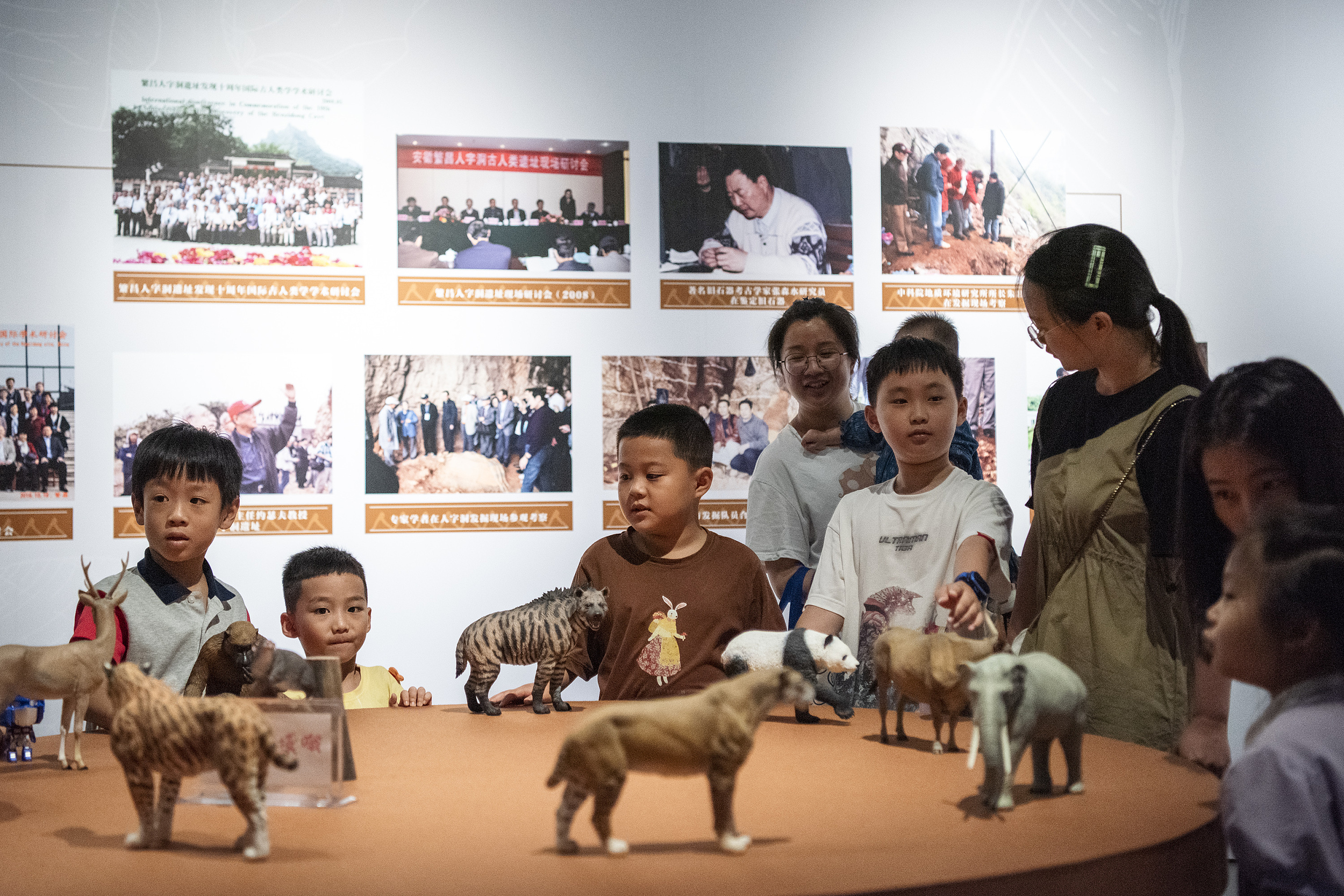China to Build More Top-level Archaeological Institutions

Children visit an exhibition hall of archaeological excavation in Wuhu city, east China's Anhui province. (PHOTO: VCG)
By?CHEN?Chunyou
The National Cultural Heritage Administration (NCHA) issued a trial guideline to assist with the development of world-leading archaeological institutions in late May, aiming to elevate the overall impact of China's archaeological institutions and accelerate the high-quality development of cultural relics and archaeology.
To apply for the construction of a world-class archaeological institution, certain conditions must be met, says the guideline.
These include achieving fruitful academic achievements, maintaining a leading position in terms of the quantity and quality of academic output in China, and having an influence on archaeology at home and abroad. In addition, these candidates should have academic leaders and teams that are widely recognized both nationally and internationally, along with a robust team development strategy and comprehensive facilities and equipment.
According to the guideline, the construction of world-leading archaeological institutions will focus on improving the levels of academic research, international cooperation, management innovation and talent development of archaeological institutions, seeking to propel a group of quality archaeological institutions into the world's first-tier ranks.
The implementation of this initiative will be phased in, with the first stage targeting the construction of 10 to 15 world-leading archaeological institutions by 2030, significantly bolstering the global influence of Chinese archaeology. By 2035, a group of world-leading archaeological institutions with Chinese characteristics will be established, significantly improving their comprehensive capabilities.
The NCHA will evaluate China's archaeological institutions every three years and adjust the list of world-leading archaeological institutions based on the review results, as per the guideline.







